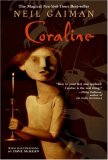Summary | Excerpt | Reading Guide | Reviews | Beyond the book | Read-Alikes | Genres & Themes | Author Bio

A Series of Unfortunate Events #13
by Lemony SnicketFrom the book jacket: You are presumably looking at the back of this
book, or the end of the end. The end of the end is the best place to begin the
end, because if you read the end from the beginning of the beginning of the end
to the end of the end of the end, you will arrive at the end of the end of your
rope.
This book is the last in A Series of Unfortunate Events, and even if you braved
the previous twelve volumes, you probably can't stand such unpleasantries as a
fearsome storm, a suspicious beverage, a herd of wild sheep, an enormous bird
cage, and a truly haunting secret about the Baudelaire parents.
It has been my solemn occupation to complete the history of the Baudelaire
orphans, and at last I am finished. You likely have some other occupation, so if
I were you I would drop this book at once, so the end does not finish you.
With all due respect, Lemony Snicket.
Comment:
The End is the 13th and final volume in the wildly popular
Series of Unfortunate Events that Daniel Handler, better known as Lemony
Snicket, began in 1999 when he first introduced the three Baudelaire siblings: bookworm
Klaus, inventive Violet, and razor-toothed baby Sunny; and their vile enemy
Count Olaf. Like the other volumes in the series, Snicket opens by warning
readers to please read no further, which of course, merely serves to lure
his many pre- and early-adolescent fans who appreciate his gothic humor to keep
turning the pages, which are filled with the usual blood-curdling terrors and
cleverly introduced vocabulary lessons.
Some early reviews
for The End comment that the story ends rather suddenly without any real conclusion;
don't be put off by these reviews which are based on reading an unfinished copy
of the book. Wanting to give reviewers a chance to read the final volume
but also wishing to maintain the suspense, the publisher sent advanced reading
copies to reviewers but purposely did not include the last two chapters.
Unfortunately, a few of the early reviewers did not pick up on this all
important detail when writing their reviews!
A number of adults I've spoken to have skimmed one or more books in this series
and have come away wondering what the fuss is about. I must admit I felt
the same way until a car journey a few years ago when we listened to one of the
earlier volumes read by Tim Curry (who narrates the whole series). All of a
sudden, the humor and pacing made perfect, and very humorous sense, and I've
been a fan ever since.
When asked whether it bothers him that for the foreseeable future he'll be
identified as Lemony Snicket first and Daniel Handler second, Handler replies: "The success of the Snicket series allows me to write full-time, in a
house with a view of the sea. This is no bother at all. Besides, it’s nice to
hand over my credit card and attract no notice whatsoever."
"It is natural now to wonder how some people can do terrible things, how we can stay strong when something terrible could happen to us at any moment, whether it is right to inflict horror on other people because it has been inflicted on us. The answers are unlikely to be found in stories that ignore rather than acknowledge these questions." . - Daniel Handler writing in the New York Times ~2001.
Did you know?
![]() This review
first ran in the December 6, 2006
issue of BookBrowse Recommends.
This review
first ran in the December 6, 2006
issue of BookBrowse Recommends.

If you liked The End, try these:

by Philip Ardagh
Published 2003
This hilarious historical spoof, the first in the Eddie Dickens trilogy, has been called "a scrumptious cross between Dickens and Monty Python. Ages 9+.

by Neil Gaiman
Published 2003
'An electrifyingly creepy tale likely to haunt young readers for many moons.... a real bedtime-buster'. Read an exclusive excerpt at BookBrowse today. Reading age approx. 9 yrs +.
What really knocks me out is a book that, when you're all done reading, you wish the author that wrote it was a ...
Click Here to find out who said this, as well as discovering other famous literary quotes!
Your guide toexceptional books
BookBrowse seeks out and recommends the best in contemporary fiction and nonfiction—books that not only engage and entertain but also deepen our understanding of ourselves and the world around us.